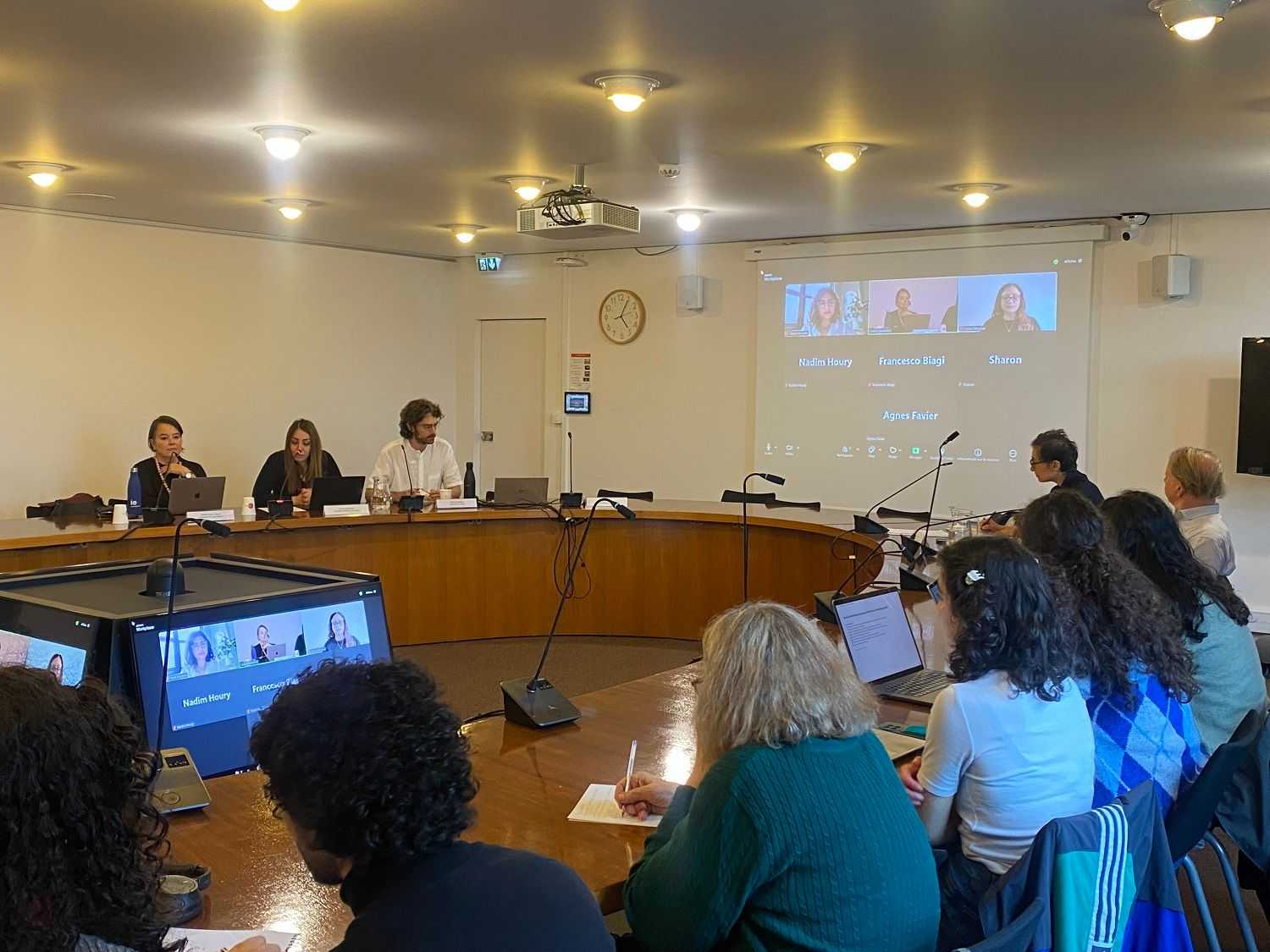Home>Sciences Po Law School and MENA Program Host First Joint Event: Roundtable on Syria’s Constitutional Declaration

14.05.2025
Sciences Po Law School and MENA Program Host First Joint Event: Roundtable on Syria’s Constitutional Declaration
On April 15, 2025, the Sciences Po Law School and the Middle East and North Africa (MENA) Program hosted their first joint roundtable, bringing together leading scholars and practitioners to discuss Syria’s newly issued Interim Constitutional Declaration.
The roundtable titled ‘Syria’s Constitutional Declaration: Milestone or Stumbling Block?’.
The event explored the legal and political implications of the declaration announced on March 13 by Syrian President Ahmad al-Sharaa. Designed to shape Syria’s governance over the next five years, the declaration has sparked significant debate regarding its legitimacy, scope, and long-term impact on the country’s post-conflict future.
The roundtable was chaired by Sanaa Alsarghali, Visiting Professor at Sciences Po Law School, Associate Professor of Constitutional law at An-Najah National University, Palestine. The event featured an interdisciplinary panel composed of distinguished speakers:
- Eberhard Kienle, Director of Research at the Centre national de la recherche scientifique (CNRS); Professor of Politics at Sciences Po Paris (CERI)
- Helena Alviar García, Full Professor, Sciences Po Law School
- Dima Moussa, Lawyer, Former drafting committee member/Founding member of the Syrian Women’s Political Movement
- Zaid Al Ali, Senior Program Manager, Constitution Building of the Arab Region-International IDEA/Visiting Scholar, Princeton University
- Aghiad Ghanem, PhD in International Relations, academic advisor PSIA
- Alia Aoun, Lawyer at the Paris Bar; Counsel at the International Criminal Court, adjunct professor at PSIA
- Sana Mustafa, No-Profit leader and Syrian feminist Human Rights defender/ member of the Syrian women political movement
- Nadim Houry, Executive Director, Arab Reform Initiative
Panellists addressed a range of issues, including state sovereignty and security, the balance of powers between the executive and legislature, mechanisms for transitional justice, the intersection of religion and rights, and the absence of a clear pathway toward a permanent constitution. Discussions centered on whether the declaration lays the foundation for inclusive governance or serves as a means of consolidating executive authority.
Sanaa Alsarghali noted:
The strong turnout, the thoughtful exchange among the speakers, and the insightful questions from the audience underscored the importance of engaging with constitutional questions through an interdisciplinary lens—especially in the MENA context, where law, identity, power, and other forces are deeply intertwined. It was a true pleasure to work with the Law School and the MENA Program on such a timely and critical topic.
Aghiad Ghanem spoke on behalf of the MENA Program:
It is a great pleasure to have this first collaboration with the Law School on such an important topic—particularly on constitutional discussions that became relevant in the MENA region today as they were thirteen years ago. The Program is delighted to establish such links with the Law School.
This inaugural collaboration between the Law School and the MENA Program underscores Sciences Po’s ongoing commitment to interdisciplinary engagement with pressing constitutional studies across the MENA region.